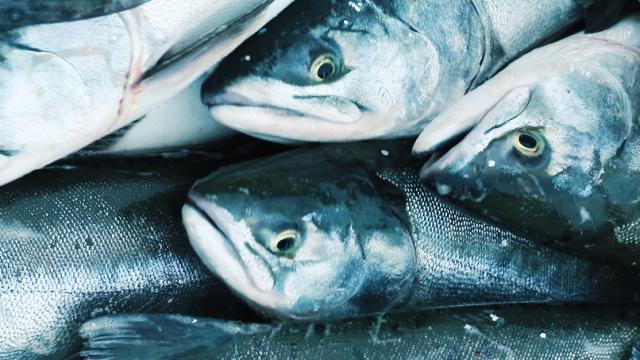If you’re not up on your fish-cum-metal news, then you might be forgiven for finding the idea of using fish sperm to recycle rare earth elements entirely bizarre. But, no, fish sperm has a real albeit weird little niche in materials science. Let us be your guide through it.
Fish sperm, you see, is really just a cheap and ready-made source of DNA. DNA has a backbone made of negatively charged phosphate, which can attract metals like rare earth elements.
In a recent study in PLoS ONE, Japanese scientist made a powder out of salmon milt, another name for salmon sperm. They mixed it up in a solution with three metals found in neodymium magnets (neodymium, dysprosium and trivalent iron). The metals bound to phosphate from the powder and could be extracted from the solution.
As Chemistry World points out, this study on the industrial uses of fish sperm comes on the heels of a couple others. In 2013, Italian scientists developed a flame-retardant coating from DNA extracted from herring sperm. And another group of Japanese scientist have suggested using salmon milt DNA to mass produce silver nanoparticles.
One of the primary attractions of fish sperm as a DNA source is that it’s inexpensive and plentiful, usually a waste product for the fish industry. Who knows — if this technique works out, fish jizz could one day be a lot more valuable. [Chemistry World, PLoS ONE]
Picture: Dudarev Mikhail/Shutterstock
